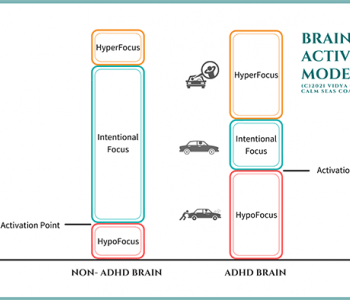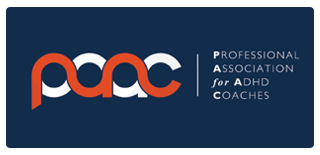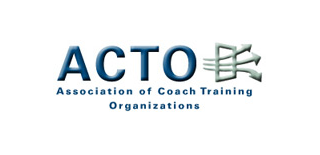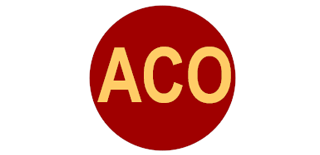
Review of ADHD Entrepreneurial Research
David GiwercADHD Education | David Giwerc | Research
This is the first in a series of two blog posts discussing and reviewing
Entrepreneurship and psychological disorders: How ADHD can be productively harnessed
Entrepreneurship is often associated with ADHD symptoms such as impulsivity, hyper focus and highly passionate interests. ADHD is a neurodevelopmental psychological disorder also associated with several negative consequences such as poor academic performance, substance abuse, antisocial activities and arrests, and social exclusion and isolation.
Despite the negative public perception of ADHD, adults with ADHD may possess attributes and capacities which make them excellent candidates for entrepreneurship. There have been very few studies which have investigated the possibility that ADHD could have positive implications on Entrepreneurship.
In a recent (Wiklund et al., 2016) multiple case qualitative study of fourteen entrepreneurs previously diagnosed with ADHD, Researchers at Syracuse University, the University of Bath in the UK and the Technical University of Munich (TUM) in Germany used an inductive model highlighting impulsivity as key motivator for entrepreneurial action and hyper focus as a main impetus for its results, positive or negative.
This study also took into account factors that other research seemed to overlook or consider irrelevant, such as the success of several prominent entrepreneurs like business mogul, Richard Branson; Jet Blue founder, David Needleman; Ingvar Kamprad, who founded Ikea; and Paul Orfalea, founder of Kinko’s. All of these entrepreneurs revealed they have ADHD.
While there has been documentation of the problems associated with ADHD, the examples of successful entrepreneurship among the aforementioned individuals with ADHD raise the question of possible interconnections between ADHD and entrepreneurship.
One of the most intriguing outcomes of this research is the role impulsivity is thought to play in entrepreneurship.
Impulsivity increases the inclination for entrepreneurial action in situations of uncertainty. A key feature of this characteristic is that it bypasses any sort of risk-benefit analysis, but is rather driven by an internal sense of what “feels right” at the time. For entrepreneurs with ADHD, what is relevant is to not to wait or think. It is to act – NOW.
In the corporate and small business world, most executives detest impulsive decisions because they do not seem “rational.” Their rationale being: “How can you make a decision in the midst of uncertainty without a thorough and sober evaluation?” Intuition appears to be the answer, at least based on interviews conducted in the study. One entrepreneur claimed that his decision-making style boosts productivity in his fast-paced business. By integrating more analysis into his decisions, he is fearful his productivity would suffer. From an entrepreneurial context, rationality does not drive an intuitive decision. Acting without thinking in uncertain situations is associated with greater intuitive decision making. Especially, if the entrepreneur has an expertise where they feel comfortable intuitively making an impulsive decision and trust their instincts, perhaps having trust in their ability to decide based on a thin-slice of information.
Many of the entrepreneurs interviewed for the study cited restlessness or impatience as a key trait in entrepreneurship. This restlessness can also be viewed as a manifestation of boredom, which spurs the entrepreneur to chase after new and stimulating projects in which to use their energy and passion. This kind of novelty seeking and restlessness is the sort of intuitive push that many of the entrepreneurs in the study attributed to their ADHD and which they credited as launching their entrepreneurial careers.
References:
McMullen, J.S., & Shepherd, D.A. (2006). Entrepreneurial action and the role of uncertainty in the theory of the entrepreneur. Acad Manag Rev, 31, 132–152.
Hayward, M.L., Forster, W.R., Sarasvathy, S.D., & Fredrickson, B.L. (2010). Beyond hubris: how highly confident entrepreneurs rebound to venture again. J Bus Ventur, 25, 569–578.
Wiklund et al. (2016). Entrepreneurship and psychological disorders: How ADHD can be productively harnessed. Journal of Business Venturing Insights, 6, 14-20. doi.org/10.1016/j.jbvi.2016.07.001
----------------------------------------------------------------------------------
Part 2: Review of ADHD Entrepreneurial Research by APSARD Blogger on July 25, 2017 in Research Updates
David Giwerc, MCAC, MCC ADD Coach Academy
Originally posted in APSARD
In this second blog, I will discuss what the research Entrepreneurship and Psychological Disorders: How ADHD can be productively harnessed revealed about the importance of hyper focus and how some of the world’s leading Entrepreneurs use the strength of hyper focus. I will also propose a few practical recommendations to expand the research I believe are critical to the success of an Entrepreneur with ADHD.
——————————————————————–
Hyper focus, the Strength of ADHD Entrepreneurs to Catalyze Successful Outcomes and Recommendations for Expanding “Positive Approaches” Research Wiklund et al. (2016). Entrepreneurship and psychological disorders: How ADHD can be productively harnessed. Journal of Business Venturing Insights, 6, 14-20. doi.org/10.1016/j.jbvi.2016.07.001
The final important element revealed in the research on the impact of ADHD on entrepreneurs (Wiklund et al., 2016) is that hyper focus was identified as among the greatest attributes for the ADHD entrepreneur. Hyper focus is the ability to focus intensely on a task at hand to the exclusion of all else – including forsaking eating and sleeping. This is often observed with ADHD entrepreneurs who are pursuing a business venture about which they are passionately enthused. David Neeleman revealed that he could not pay attention in the classroom, yet was able to hyper focus tirelessly on important issues within the airline industry, which eventually led to the founding of JetBlue.
Paul Orfalea was referred to as his company’s “chief wanderer,” spending 3 weeks on the road hyper focusing on how his own stores were operating and what his competitors were doing. He said it was his ADHD that compelled him to wander because he could never bear staying in one place too long. He also discovered that leaving headquarters removed him from the boring, mundane, daily routine of work that left little room for insight, inspiration and innovation, qualities that drove him to differentiate his product from that of his competitors, which helped placed Kinkos in the forefront of consumers’ minds, making it the world’s leading retailer for document copying and business services; Orfalea sold Kinkos to Federal Express for $2.4 billion in 2014.
This study reinforced what I have observed in coaching Entrepreneurs with ADHD for over 20 years. Every successful entrepreneur is involved with a business they love. The business enterprise is not derived from pressure to work in a business or workplace environment not suited to their ADHD and unique strengths.
These and other examples represent the restless, impatient nature of the entrepreneur with ADHD who experiences boredom while attending to the daily mundane grind of tasks, which impedes the ability to think creatively and innovate. Without sufficient mental stimulation, the entrepreneur with ADHD will seek out opportunities to explore new and interesting ideas, which may induce a state of hyper focus. This type of intense, intellectual attentiveness and vigor will lead to the attainment of a wider scope of knowledge, in a specific domain, often expanding their perspective, abilities and confidence, in a chosen field, thus increasing the chance for success when an intuitive decision needs to be made, which is a conjecture of Wiklund et al. (2016).
Future Research Recommendations: Existing research on adult ADHD has not supported evidence for any positive effects of the diverse qualities inherent in ADHD. However, some anecdotal evidence suggests that some features ADHD may have positive implications in some settings, such as entrepreneurship.
The Wiklund et al. (2016) study is an important first step towards understanding how ADHD impacts entrepreneurship, albeit based on case study. It transcends the symptoms of ADHD and opens a new pathway for more formal academic/scientific study to investigate positive ways to approach ADHD and entrepreneurship.
There are at least three areas for future research: 1) the role of physical exercise in managing an entrepreneur’s ADHD symptoms and how a consistent exercise regimen may be a source of time-limited symptom management the promotes creativity; 2) identification and integration of unique information processing modalities for improved communication of information, presenting business proposals, and assigning and managing tasks, which may inform strategic use of assistive technology in business settings; and 3) the use of the VIA character strengths survey (Peterson & Seligman, 2004) to identity self-endorsed character traits that may be associated with entrepreneurship. I can only conjecture that “creativity” would emerge as one of the core signature strengths in entrepreneurs with ADHD.
Many of the ADHD entrepreneurs in the study knew intuitively that they were different and stood out from peers in ways that might not have been perceived in positive terms. One of the most important messages of this research is that ADHD is not only a diagnosis; it is also, potentially, a unique difference that may bring with it unconventional strengths. When understood by entrepreneurs with ADHD in this way, it can be the catalyst for identifying who they are, including envisioning unconventional ways of doing things in order to create and build innovative and successful businesses.
By David Giwerc, MCAC, MCC ADD Coach Academy
Originally posted on The American Professional Society of ADHD and Related Disorders
References Csikszentmihalyi, M. (1997). Flow and the Psychology of Discovery and Invention. HarperPerennial, New York.
Orfalea, P., & Marsh A. (2005). Copy This!: Lessons from a hyperactive dyslexic who turned a bright idea into one of America’s best companies. Workman Publishing Company, Inc.: New York
Logan, J. (2009). Dyslexic entrepreneurs: the incidence; their coping strategies and their business skills. Dyslexia 15 (4), 328–346.
Peterson,C., & Seligman,M. (2004). Character Strengths and Virtues: A Handbook and Classification. Oxford University Press: New York
Wiklund et al. (2016). Entrepreneurship and psychological disorders: How ADHD can be productively harnessed. Journal of Business Venturing Insights, 6, 14-20. doi.org/10.1016/j.jbvi.2016.07.001












